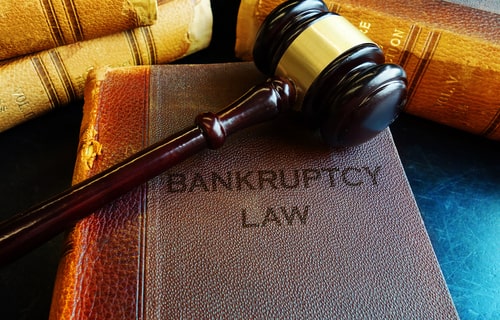Common Mistakes Before Filing for Bankruptcy in Texas
 Filing for bankruptcy can be a long, drawn-out process, especially if you are unfamiliar with the ins and outs of Texas law. It is easy to make mistakes that could otherwise be avoided with the right information and guidance. Having a Texas lawyer on your side can make a significant difference. There are too many mistakes that can be made easily.
Filing for bankruptcy can be a long, drawn-out process, especially if you are unfamiliar with the ins and outs of Texas law. It is easy to make mistakes that could otherwise be avoided with the right information and guidance. Having a Texas lawyer on your side can make a significant difference. There are too many mistakes that can be made easily.
Mistake #1: Not Understanding the Different Types of Bankruptcy
In Texas, individuals primarily opt for two types of bankruptcy: Chapter 7 and Chapter 13. Chapter 7, also known as "liquidation" bankruptcy, involves selling non-exempt assets to settle debts. Chapter 13 bankruptcy, alternatively, is a type of "reorganization" bankruptcy designed to let you retain your assets while you pay down your debts over a period of three to five years. Understanding the differences between the two types of bankruptcy is crucial to determining which suits your situation.
Mistake #2: Not Taking Advantage of Texas Exemptions
Texas has some of the most generous bankruptcy exemptions in the country. These exemptions allow you to protect certain assets from being sold or seized during the bankruptcy process. For example, Texas has an unlimited homestead exemption, which means you can protect the full value of your primary residence.
Other exemptions include personal property, such as clothing, furniture, and vehicles, as well as retirement accounts and certain types of insurance policies. Make sure to work with an experienced bankruptcy attorney who can help you maximize your exemptions and protect your assets.
Mistake #3: Failing to Disclose All Assets and Debts
When filing for bankruptcy in Texas, it is essential to be transparent and disclose all of your assets and debts. Failing to do so can result in serious consequences, including dismissing your case or even criminal charges for bankruptcy fraud. Be thorough when listing your assets and debts, and do not try to hide anything from the court or your creditors.
Mistake #4: Taking on New Debt Before Filing
A common mistake individuals make before filing for bankruptcy is incurring new debts under the assumption that these will be wiped out during the bankruptcy proceedings. However, this is not always the case. Taking on new debt shortly before filing for bankruptcy can be seen as fraudulent and may result in that debt not being discharged. Avoid taking on new debt in the months leading up to your bankruptcy filing, and focus on managing your existing debts as best as possible.
Contact an Arlington, TX Bankruptcy Attorney
By avoiding common bankruptcy mistakes and seeking the help of a Dallas, TX bankruptcy lawyer, you can increase your chances of a successful outcome. Acker Warren has a speedy turnaround and can complete a case completely virtual. Call Acker Warren P.C. at 817-752-9033 for a free consultation.









